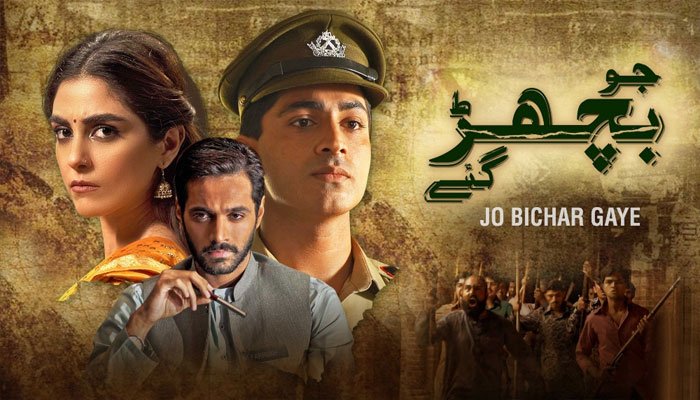“Jo Bichar Gaye” has been winning rave reviews from audiences, impressing with its strong storytelling, gripping narrative and attention to detail. Starring Wahaj Ali, Maya Ali, Talha Chahour, Nadia Jamil, Adnan Jaffar and others in prominent roles, the story has been written by Ali Moeen and directed by Haissam Hussain. The story focuses on the memoirs of Col. Z.I. Farrukh.
Episode 7 of “Jo Bichar Gaye” leaves the viewer terrified. This isn’t an easy show to watch, high on tension and anxiety-inducing for the faint of heart. But what this episode drives home, most of all, is that no character on this show is “safe.” This is a show depicting a part of our history, a piece of reality that deeply affected Pakistan, Bangladesh and the citizens of both (then one) countries. Many stories that have been passed down from those who lived through the 1971 civil war are not light, fluffy stories, rather they are those of trauma and loss, as is true during most times of turmoil…..and this is what is now beginning to unfold on our screens.
In episode 7, Rumi (Wahaj Ali) is now visibly worried about the political change in climate. While independence has always been his dream, his dream also included a peaceful transfer – which is in direct contrast to what Shil, who has now taken over as leader, is planning. Rumi now feels like an outsider looking in, lost and troubled over what’s to come. Meanwhile, Sonia (Maya Ali) continues to taunt Rumi, though recognizing that he’s upset. Rumi and Sonia have a difficult relationship, as they care about one another but their political viewpoints keep them on the opposite side of things. It’s another interesting moment when Sonia’s auntie reads her tarot cards and Sonia receives three “heavy” cards – The moon (misunderstanding), the tower (danger) and death (change). Sonia is disturbed by her Auntie’s reaction, as she refuses to show her the cards. What is in store for Sonia’s future – or does she have one? Maya Ali continues to win our hearts as Sonia.
Captain Farrukh (Talha Chahour) is in a state of mourning as the lives of Pakistani officers are lost regularly now. The army is being stifled and suffocated, making Farrukh question being there and their need to remain. He is uncomfortable and scared, expressing a desire to leave while also recognizing that it’s his job to stay and protect. Threats continue to come the army’s way and Captain Siddique tells Farrukh that it’s in their fate to die protecting their land, leaving the cantonment to do just that while the families of the officers are moved to a safe location. Talha Chahour as Farrukh serves as the thoughts and feelings of the viewer, driving home the human emotions in such a situation, and he is wonderful.
The episode ends with two terrifying moments. First, Rumi approaches Ajit (Usman Zia) about what’s happening in the country and hears words that shock him to his core. Ajit accuses Sonia of being a Pakistani spy, of having an affair with Captain Farrukh, Haroon of being friends with West Pakistanis and labels Shabnam as a West Pakistani herself. He, in no uncertain terms, states that Rumi’s family is in danger with what sounds like a lightly veiled threat. Rumi has worked for Bengali freedom for years, wanting independence in a peaceful way and now, after everything he has done, he is horrified to realize that it does not offer his own family protection in any way – rather, they are now targets. Wahaj Ali is brilliant in this episode as a troubled Rumi grapples with this new reality he has been transported into, the freedom he has supported for years now potentially coming at a cost. Rumi goes home only to find a large X on his family home, marking Sonia and her family as targets to attack. Wahaj Ali expresses through his eyes the horror Rumi is feeling as he desperately tries to wipe the “X” off the wall. This moment is troubling, not only for Rumi, but also for viewers who have now been transported into a time of danger.
Second, we see Captain Siddique at a base with his own fellow officers, though of Bengali decent. It’s in this moment that Captain Siddique truly feels the way things have changed and finds himself feeling unsafe in their presence. As the episode closes on Siddique, we see him enter his tent, his gun aimed at the entrance, awaiting attack – and eventual death. This is a moment that brings our stomachs to our throats, driving home the way things can change in a matter of moments, days, weeks and how a situation that was once comfortable is now one of distress.
There’s little to complain about with “Jo Bichar Gaye.” This is truly a Netflix level show. And still, as viewers, we do want to see a balanced narrative and have faith that it will come, as right now the narrative is largely Pakistan-centric. Other than this complaint, everything else is nothing but praise-worthy.
